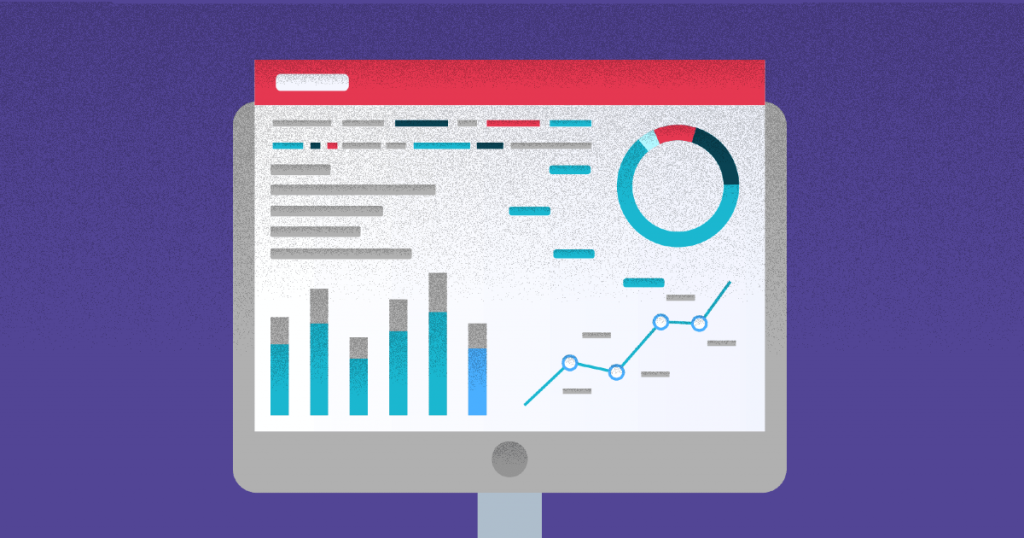To be successful in such a disputed market, it is fundamental to adopt some practices that potentiate its results. One of them is the Data Collection process, which seeks to use relevant information to improve your Digital Marketing actions.
And to do this efficiently, it is essential to know what is DMP.
The acronym for Data Management Platform is the ideal tool to ensure that all data collected is used correctly.
After all, dealing with a large amount of information can make this work more complex, losing relevant decentralization data, for example. DMP arrives to meet this need.
But how does this tool work? To help you answer this question, we have prepared an article in which we will address the following topics:
Ready to find out what is DMP and how it can enhance your performance? Read on and check it out!
What is DMP?
DMP, the acronym for Data Management Platform, is a solution used for data management. Your job is to interpret, collect, and organize relevant information about the audience you want to impact.
Thus, you can centralize all this data and ensure that your marketing actions become even more efficient.
Imagine if each member of your team stored the data the way they want? Many relevant data would be lost, and different tools would have to be consulted to find the data.
DMP appears as an option to store all the information about the target audience, and you would know how to communicate better with them.
Within Content Marketing, for example, your team can begin to produce content that is more appropriate to your buyer persona’s objectives, behaviors, and difficulties, increasing the effectiveness of the strategy.
How does it work?
A DMP works by storing information from different channels. That is, it does not matter if the data collected comes from your brand’s social networks or external media.
The fundamental thing is to gather all this information in a single platform, facilitating your team’s work.
The channels most used and that generate the largest amount of data are social networks, landing pages, email marketing campaigns, and applications. Also, there is the possibility of even buying this information, such as age, gender, marital status, and personal interests.
However, this data does not usually have tremendous practical value, and the best is to use your channels.
The platform, therefore, performs three essential steps.
1. Gather the data
Data can be collected from different channels. Usually, cookies are the most used mechanisms for this, as well as prevalent forms in landing pages for conversion.
Therefore, at this stage, the most important thing is to access the relevant information about the users you wish to impact.
2. Process the information
But it is not enough just to gather all the information in one place. After collecting the data, the tool will relate all the information to trace patterns that can be used to segment the different audiences that can become clients.
This is one of the essential steps since it is the automation of functions, allowing your team to concentrate on more strategic activities.
3. Converts into strategies
One of the Digital Marketing benefits is the possibility of automating some processes, and the purchase of spaces for online advertising done automatically is one of them.
Thus, the data stored and processed by DMP creates an automatic segmentation of users, guiding the most indicated paths for your campaigns to become relevant.
Why should your company use one?
You already know what a DMP is and its importance. Now, you will be able to clear your doubts about implementing this tool in your operations.
Allows you to do targeted advertising
Nowadays, it is essential to be able to direct your campaigns. After all, users are daily impacted, and it is necessary to find ways to differentiate themselves and convey the message more directly.
DMP can play an important role in this task, as it provides the required information to customize advertising campaigns and thus increase conversion chances.
Optimizes the user experience
The more personalization in the contacts between your brand and users, the better the experience provided.
For instance, this reinforces your company’s authority within its segment, besides being an excellent way to build a closer and more natural relationship with your audience.
Every step of the user’s journey with your brand counts, and nothing better than precise data to make the necessary adjustments.
Improve the ROI of campaigns
When your campaigns start generating more conversions, the tendency is for ROI to decrease considerably. In other words, investing in a DMP contributes directly to optimizing the budget available for your strategies.
Less time and resources are used to obtain more satisfactory results.
Allows the implementation of efficient strategies
More than efficient campaigns, DMP helps direct all your marketing efforts, allowing you to create effective actions even with a tighter budget, for example.
The best thing is that it is still possible to use this information in the various channels that make up your strategic planning.
Knowing the concept of DMP is the first step to make your Digital Marketing plan even more efficient and make better use of available resources.
With the organization of relevant data and information, the chances of optimizing your team’s productivity also increase considerably, creating more accurate actions.
Now that you know what is DMP, how about digging a little deeper into the pillars of data-driven marketing? Then check out the latest issue of Rock Content Magazine, and discover the importance of data visualization!








